Economy
Global oil price surge put pressure on government to remove daily petrol subsidy of N8.28b

—-NNPC , PPPRA disagree on exact figures of petrol subsidy.
–as PMS landing cost hits N264.65/Litre
The rapid rise in global oil prices to record highs has pushed the subsidy cost being incurred by the Federal Government to N8.28bn daily.
This has therefore put pressure on the Nigeria National Petroleum Corporation(NNPC) to remove subsidy on the product which analysts said is consuming more than 50 per cent of its remittances to the Federation Account.
The data also revealed that without subsidy, petrol would be selling for about N300 per litre as the landing cost of the product rose to N276.94 per litre last Friday from N249.42 per litre in July 30.
The Economic Confidential had reported on September 28 that the NNPC spent a total of N905.27bn on petrol subsidy from January to August, citing data from the corporation.
The subsidy, which the NNPC prefers to call ‘value shortfall’ or ‘under-recovery, resurfaced in January this year as the government left the pump price of petrol unchanged at N162-N165 per litre despite the increase in oil prices.
President Muhammadu Buhari has said the federal government’s expenses on petrol subsidy has eaten into the revenue that should have been available to fund the 2021 budget.
He spoke on Thursday when he presented the 2022 appropriation bill at the National Assembly.
He said the government was forced to suspend a further increase in the pump price of petrol due to opposition from the labour unions and other stakeholders.
“The National Assembly will recall that in March 2020, the Petroleum Products Pricing Regulatory Agency(PPPRA) announced that the price of petrol would henceforth be determined by market forces.
“However, as the combination of rising crude oil prices and exchange rate combined to push the price above the hitherto regulated price of 145 Naira per litre, opposition against the policy of price deregulation hardened on the part of labour unions in particular.
“Government had to suspend further upward price adjustments while engaging labour on the subject. This petrol subsidy significantly eroded revenues that should have been available to fund the budget”, observed President Buhari.
The Federal Government had in March 2020 removed petrol subsidy after reducing the pump price of the product to N125 per litre from N145 following the crash in oil prices.
The NNPC, which has been the sole importer of petrol into the country in recent years, has been bearing the subsidy cost since it resurfaced.
The price of crude oil, which accounts for a large chunk of the final cost of petrol, has continued to rise in recent months, with Brent, the international oil benchmark, closing at $82.39 on October 8, up from $77.72 on July 30. It increased further to $83.94 per barrel as of 5:05 pm Nigerian time on Monday.
The Petroleum Products Pricing Regulatory Agency(PPPRA) had in March this year released a pricing template that indicated the guiding prices for the month.
The template, which showed that the petrol pump price was expected to range from N209.61 to N212.61 per litre, was greeted with widespread public outcry and was later deleted by the agency from its website.
It was based on an average oil price of $62.22 per barrel, and the landing cost of petrol was put at N189.61 per litre.
Based on the PPPRA template and Platts data, the expected pump price of petrol rose to N299.94 per litre on October 8 from N272.34 per litre on July 30.
The expected retail price of N299.94 per litre and the current pump price of N162 per litre indicate a subsidy of N137.94 per litre as of October 8, compared to N110.34 per litre on July 30.
With daily petrol consumption put at about 60 million litres by the NNPC and a subsidy of N N137.94 per litre, daily subsidy increased to N8.28bn last Friday from N6.62bn on July 30.
The rising price of crude oil pushed the cost of petrol quoted on Platts to $822.75 per metric tonne (N254.25 per litre, using the I&E rate of N414.40/$1) on October 8 from $748.50 per MT (N228.91 per litre) on July 30.
The freight cost increased to $26.77 per MT (N8.27 per litre) last Friday from an average of $21.63 per MT (N6.62 per litre) used by the PPPRA in its March template.
Other cost elements that make up the landing cost include lightering expenses (N4.81), Nigerian Ports Authority charge (N2.49), Nigerian Maritime Administration and Safety Agency charge (N0.23), jetty throughput charge (N1.61), storage charge (N2.58), and financing (N2.17).
The pump price is the sum of the landing cost, wholesale margin (N4.03), admin charge (N1.23), transporters allowance (N3.89), bridging fund (N7.51), marine transport average (N0.15), and retailer margin (N6.19).
While marketers have continued to stress the need to allow market forces to determine the pump price of petrol and do away with subsidy, it remains uncertain whether the discussions between the Federal Government and labour unions will lead to the deregulation of petrol prices.
Meanwhile, both the NNPC and PPPRA have disagreed on the actual amount which the government is pending as a petroleum subsidy.
According to a source in the Petroleum Products Pricing Regulatory Agency (PPPRA), there exists a difference between the agency’s cost and that of the Nigerian National Petroleum Corporation (NNPC).
A subsidiary of the NNPC, the Pipelines and Products Marketing Company(PPMC) is the sole importer of the product.
The NNPC said the source has a higher landing cost than that of the PPPRA. Although the agency had last year announced the deregulation of the product, the Federal Government had recourse to subsidising it when the landing cost became unbearable for the end-users.
The NNPC that termed it under recovery regime has left the pump price at a band between N162 and N165 per litre.
From the PPPRA landing cost of N264.65 per litre, there exists a subsidy or an under-recovery of N102.65 per litre.
In the last few years, many stakeholders within and outside the federal government have called for the scrapping of the subsidy regime for premium motor spirit (PMS), better known as petrol.
Zainab Ahmed, Minister of Finance, Budget and National Planning, in July 2021, advocated the end of fuel subsidy, saying it “costs as much as N150 billion” monthly.
Her comment came four months after Mele Kyari, Group Managing Director (GMD) of the Nigerian National Petroleum Corporation (NNPC), had said the company “may no longer be in a position” to bear the “subsidy burden”.
Economy
Nigeria’s Oil exports face threat as US- Israel attack on Iran escalates, Strait of Hormuz blockade imminent
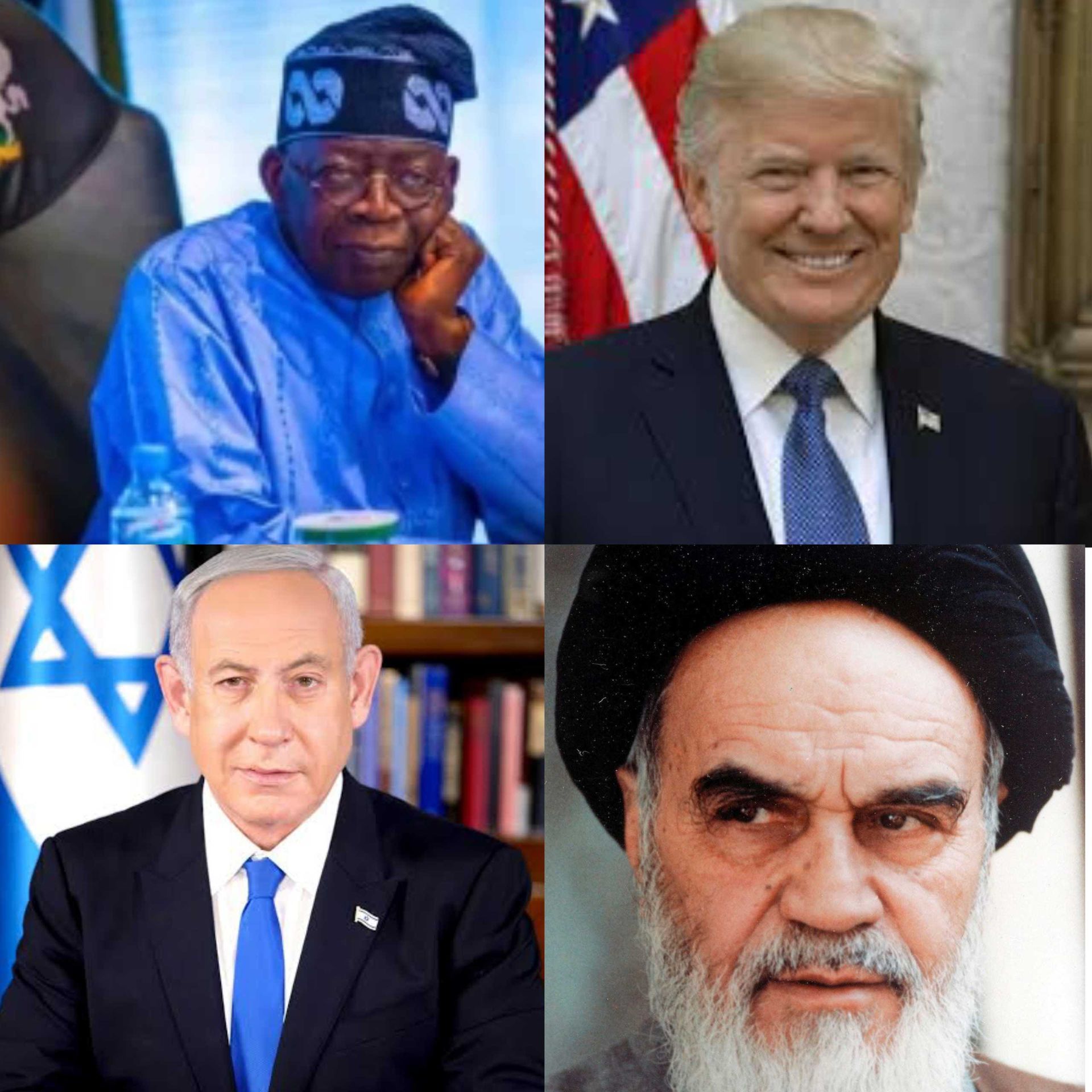
It links the Arabian/Persian Gulf, or just the Gulf, with the Gulf of Oman and the Arabian Sea beyond.
It is 33km (21 miles) wide at its narrowest point, with the shipping lane just 3km (2 miles) wide in either direction, making it vulnerable to attack.
Despite its narrow width, the channel accommodates the world’s largest crude carriers.
According to the US Energy Information Administration (EIA), about 20 million barrels of oil, worth about $500bn in annual global energy trade, transited through the Strait of Hormuz each day in 2024.The crude oil passing through the strait originates from Iran, Iraq, Kuwait, Qatar, Saudi Arabia and the UAE.
The strait also plays a critical role in the liquefied natural gas (LNG) trade.
On Saturday, February 28th, 2026, an official from the European Union told the Reuters news agency that vessels crossing the strait have been receiving very high frequency (VHF) transmissions from Iran’s elite Islamic Revolutionary Guard Corps (IRGC), saying “no ship is allowed to pass the Strait of Hormuz”.However, the EU official added, Iran has not officially closed the strait.
“Our ships will stay put for several days,” a top executive at a major trading desk told Reuters on condition of anonymity. Countries like Greece have also advised their vessels to avoid transiting through the waterway.
Any instability in this important maritime route could rattle economic stability worldwide.
The strait handles both oil and gas exports and imports.
Kuwait and the UAE import supplies sourced outside the Gulf, including shipments from the United States and West Africa.
The EIA estimated that in 2024, 84 percent of crude oil and condensate shipments transiting the strait headed to Asian markets.
A similar pattern appears in the gas trade, with 83 percent of LNG volumes moving through the Strait of Hormuz destined for Asian destinations.
China, India, Japan and South Korea accounted for a combined 69 percent intake of all crude oil and condensate flows through the strait last year. Their factories, transport networks and power grids depend on uninterrupted Gulf energy.
A spike in oil prices will impact countries such as China, India and several Southeast Asian nations.
How would the Strait’s closure impact oil prices?
According to Iranian state media, the country’s Supreme National Security Council must make the final decision to close the strait, and it has to be ratified by the government.But energy traders have been on high alert in recent weeks amid escalating tensions in the region – home to one of the largest reserves of oil and gas in the world.
Muyu Xu, senior crude oil analyst at Kpler, told reporters that since the war began on Saturday, there has been a sharp drop in vessel traffic through the strait.
“At the same time, the number of vessels idling on either side – in the Gulf of Oman and the Gulf – has surged, as shipowners grow increasingly concerned about maritime security risks following Tehran’s warning of a potential navigation closure,” he said.
“The Strait of Hormuz is critical to the global energy market, as roughly 30 percent of the world’s seaborne crude oil transits the waterway.
” In addition, nearly 20 percent of global jet fuel and about 16 percent of gasoline and naphtha flows also pass through the Strait,” Muyu said.
“On Sunday, March 1st, 2026, an oil tanker was struck off the coast of Oman, signalling a clear escalation of the conflict and a shift in targets from purely military facilities to energy assets.”
Shipping data showed that at least 150 tankers, including crude oil and liquefied natural gas vessels, have dropped anchor in open Gulf waters beyond the Strait of Hormuz.
The tankers were clustered in open waters off the coasts of major Gulf oil producers, including Iraq and Saudi Arabia, as well as LNG giant Qatar, according to the Reuters news agency estimates based on ship-tracking data from the MarineTraffic platform.
Moreover, on Sunday, March 1st, 2026,the United Kingdom Maritime Trade Operations (UKMTO) said it is aware of “significant military activity” in the Strait and said it has received a report of an incident two nautical miles north of Oman’s Kumzar, located in the Strait of Hormuz.
Muyu from Kpler said a broad range of energy infrastructure is now under threat. “This is expected to sharply intensify the oil price rally and could keep prices elevated for a sustained period, potentially longer than during last June’s conflict.”
Ali Vaez, director of the Iran project at the International Crisis Group, told Al Jazeera, “Closure of the Strait of Hormuz would disrupt roughly a fifth of globally traded oil overnight – and prices wouldn’t just spike, they would gap violently upward on fear alone.”
“The shock would reverberate far beyond energy markets, tightening financial conditions, fuelling inflation, and pushing fragile economies closer to recession in a matter of weeks,” he added.
When the US and Israel bombed Iran last June, there was no direct disruption to maritime activity in the region.
What does it mean for the global economy?
Any disruption to energy flows through Hormuz will also impact the global economy, driving up fuel and factory costs.Hamad Hussain, a climate and commodities economist at the United Kingdom-based firm Capital Economics, said that for the global economy, a sustained rise in oil prices would add upward pressure to inflation.
“If crude oil prices were to rise to $100 per barrel and remain at those levels for a while, that could add 0.6-0.7 percent to global inflation,” he said, noting that this would also lead to an increase in natural gas prices.
“This could slow the pace of monetary easing by major central banks, particularly in emerging markets, where policymakers tend to be more sensitive to swings in commodity prices,” he added.
Business
National Single Window goes live in March, 2026
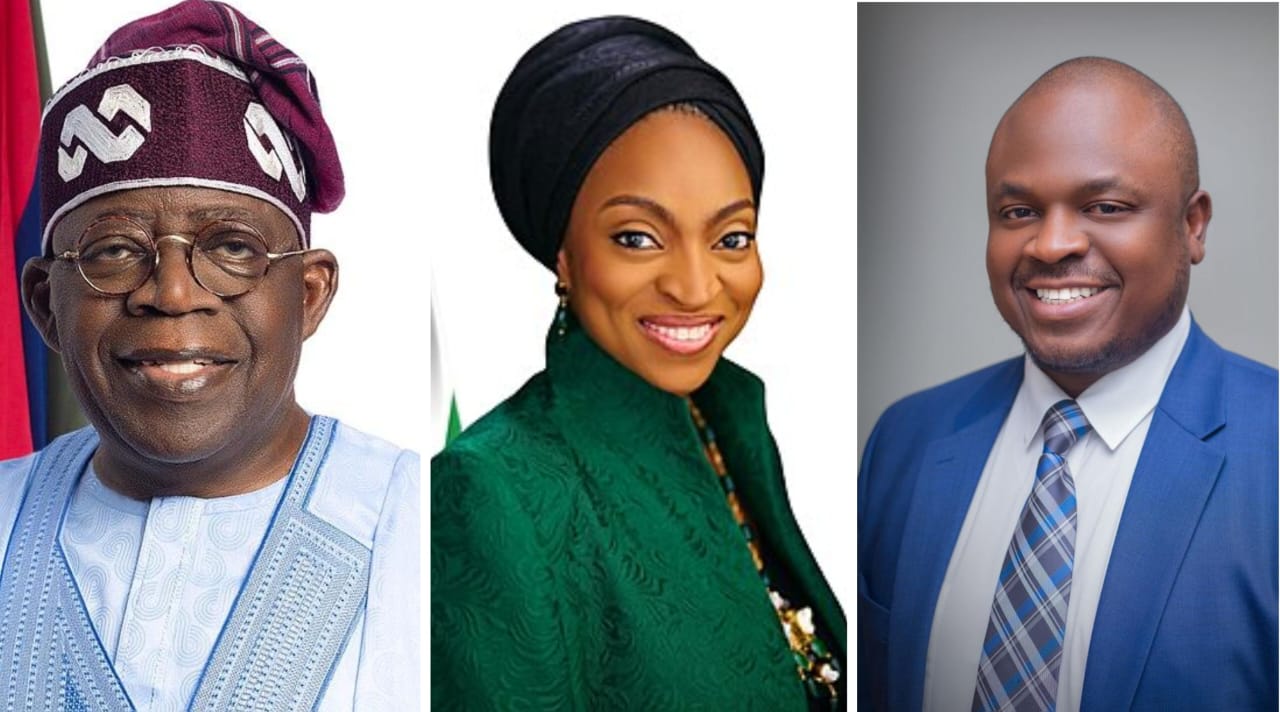
Economy
We haven’t stopped Customs, FIRS, NUPRC, others from deducting cost of revenue collection at source – FG
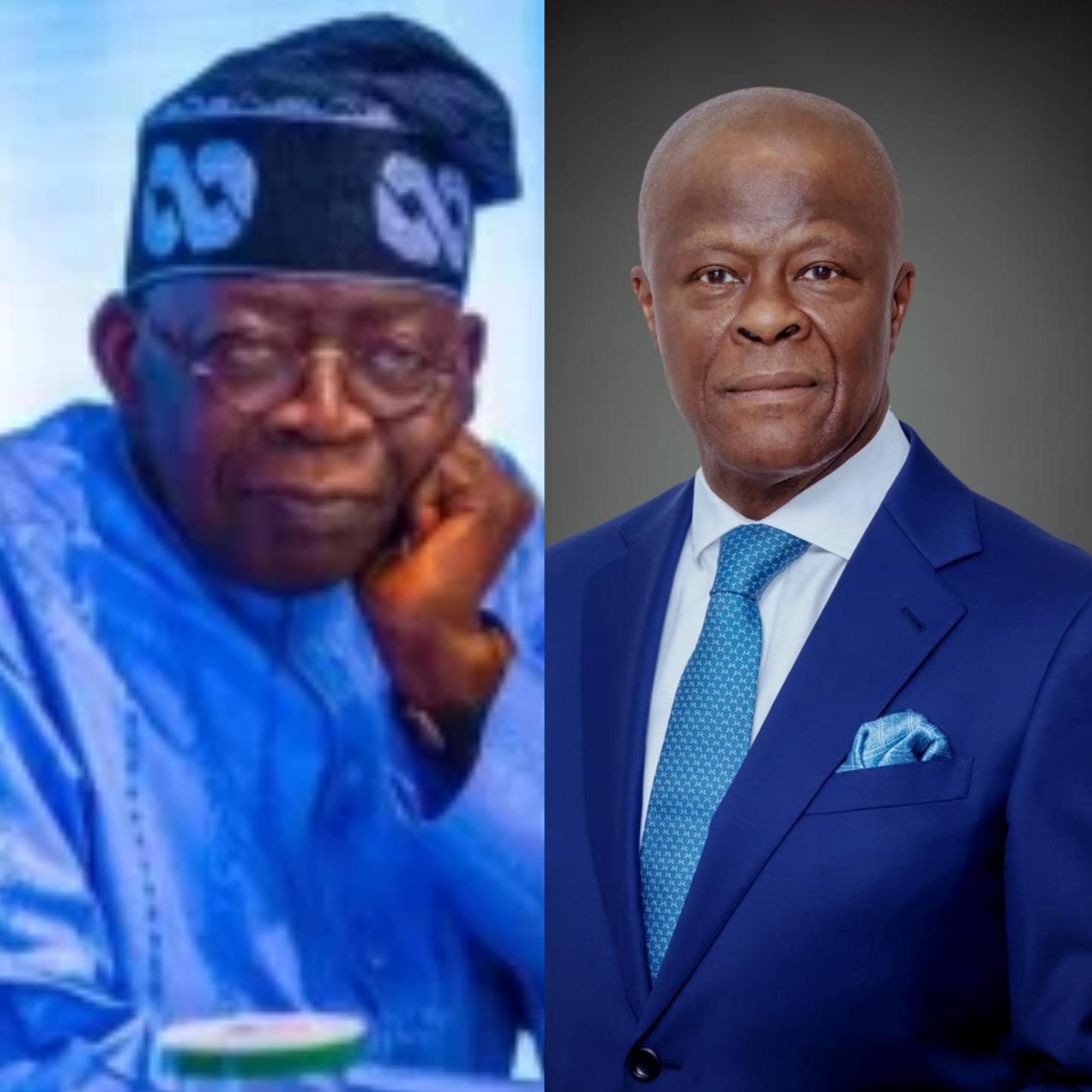
-

 Headlines2 weeks ago
Headlines2 weeks agoFIFA sends Nigeria’s Super Eagles to 2026 World Cup, awards boardroom scoreline of 3 goals to nil against DR Congo
-
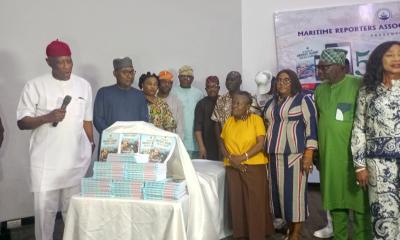
 Headlines3 months ago
Headlines3 months agoMARAN pulls industry’s stakeholders to unveil its iconic book on Maritime industry.
-

 Headlines1 month ago
Headlines1 month agoAyobo residents protest deplorable road at LCDA, complain of 10- year neglect by successive local council administrations.
-
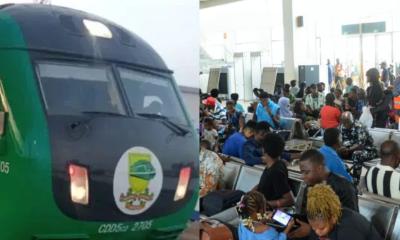
 Headlines2 months ago
Headlines2 months agoFG approves 50 percent price slash on Yuletide train services
-
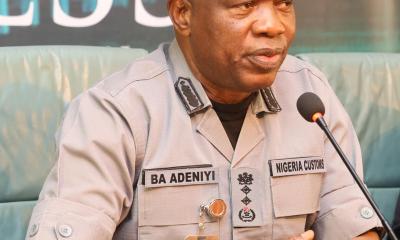
 Customs3 months ago
Customs3 months agoRelief as Customs grants January 31st, 2026 extension for fast track operators to migrate to AEO
-
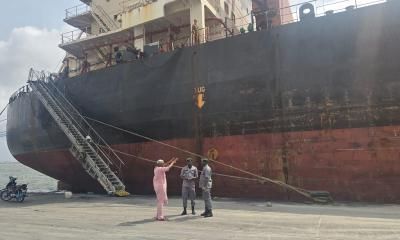
 Customs2 months ago
Customs2 months agoApapa Customs stretches illicit drug seizures streak with another new year interdiction of 30.1 kg of cocaine on board vessel.

